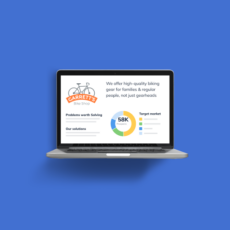Kody Wirth is a content writer and SEO specialist for Palo Alto Software—the creator's of Bplans and LivePlan. He has 3+ years experience covering small business topics and runs a part-time content writing service in his spare time.
How to Get a Small Business Loan
5 min. read
Updated January 4, 2024
Considering applying for a business loan?
While it is one of the most common small business funding options, it is also one of the most complicated. Each lender has different qualifications, loan terms, and processes to navigate.
However, by understanding the basics of the loan application process, knowing what lenders are looking for, and what to prepare—you can improve your chances of securing a loan.
In this guide we’ll walk you through how to apply, what documents you need, and common questions that may arise as you pursue a loan.
What to know when applying for a business loan
There’s a lot that goes into applying for a business loan. You need to decide on the type of loan you’ll pursue, determine if you qualify for specific loan amounts, compare lenders, and gather all necessary application materials.
But those are just the basic steps. Here is everything else you should know when applying for a business loan.
Common questions about business loans
Knowing how to apply for a small business loan doesn’t mean you’ll know everything about the application process for every lender. You likely still have some questions. Luckily, we have answers.
Small business loan templates and tools
Resources to help you prepare to apply for a business loan and pitch to lenders.



.png?format=auto)






